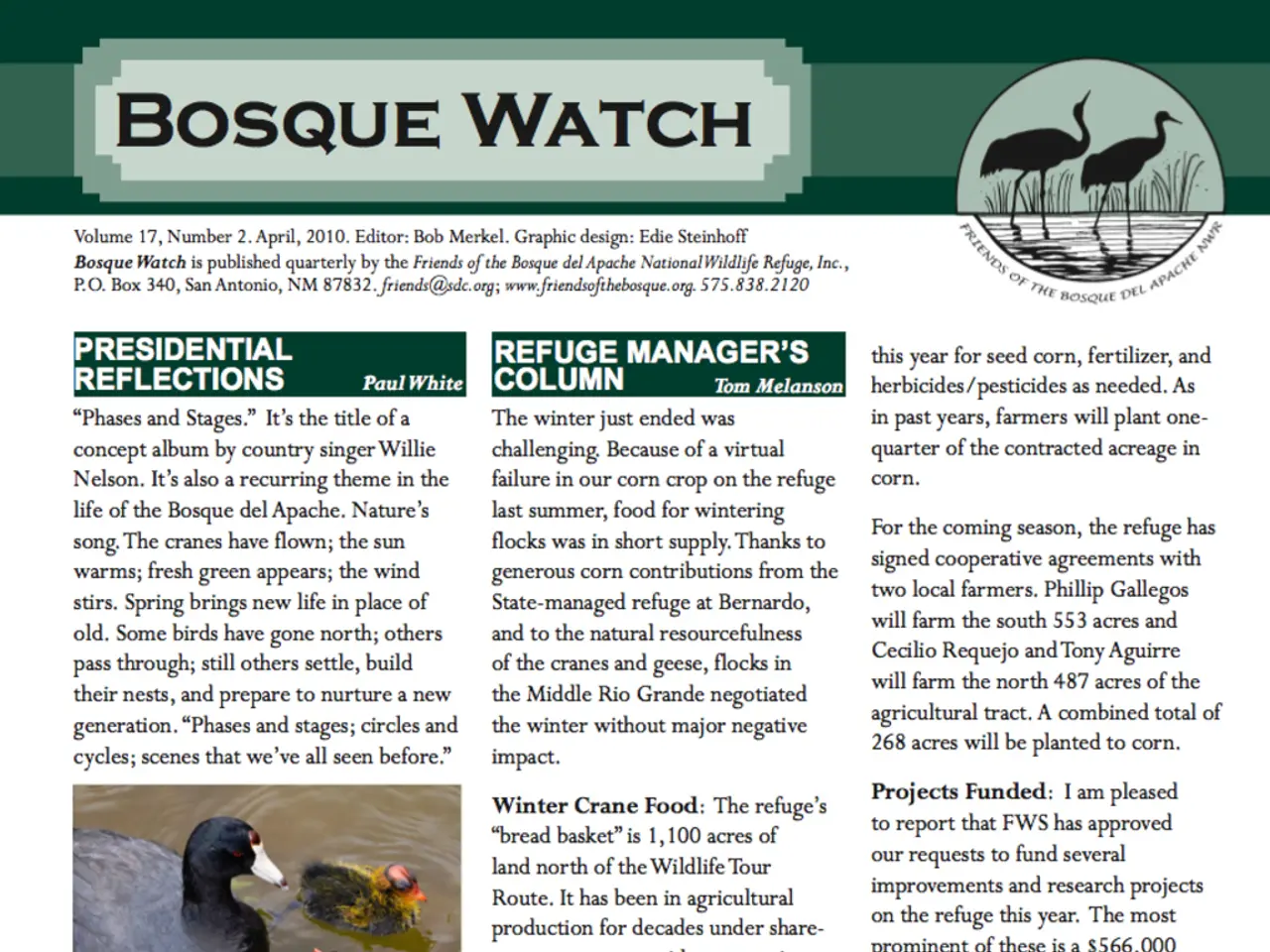Migratory birds face danger from the potential spread of botulism
Every year, large numbers of migratory birds arrive in Taiwan for winter or to stop over. Among these, the black-faced spoonbill is a notable species that has recently been affected by an outbreak of avian botulism.
According to the Taiwan Biodiversity Research Institute, avian botulism causes muscle weakness and progressive paralysis, often resulting in fatalities. In a recent outbreak, out of 107 cases, 105 involved black-faced spoonbills. Fortunately, a high recovery rate was achieved for these birds, with 80 of them being rehabilitated and released.
The high recovery rate is attributed to a costly and limited antitoxin serum, mostly reserved for the endangered black-faced spoonbill and not available for other birds. The institute did not provide any new information about the antitoxin serum for avian botulism.
The Ministry of Agriculture in Taiwan has identified botulism and collisions as the leading threats to migratory birds. Vehicle collisions have long been a main cause of injury to wildlife, and only 22 percent of all birds hit by cars recover. In the past seven years, between 2013 and last year, 335 migratory birds across 58 species were rescued in Taiwan. Of these cases, 45 involved vehicles and 21 were related to the glass of buildings.
To address this issue, the institute urges the public to report suspected injured migratory birds to local authorities or wildlife rescue units. It also advises drivers to slow down in areas frequented by migratory birds. The consequences of not addressing avian botulism outbreaks can be severe, as the accumulation of bird carcasses can become a new source of toxins, creating a vicious cycle.
Avian botulism outbreaks are more likely in wetlands when fish die en masse or there is rotting vegetation combined with reduced rainfall. The institute did not mention any new species or number of birds affected in these collisions.
The five most commonly affected migratory bird species by collisions with vehicles and buildings in Taiwan since 2013 are the Brown Shrike, Barn Swallow, Light-vented Bulbul, Black Drongo, and Oriental Magpie-Robin.
A photo courtesy of the Taiwan Biodiversity Research Institute was provided, showcasing the black-faced spoonbill, a beautiful and endangered species that has been significantly impacted by the recent avian botulism outbreak. It serves as a reminder of the importance of protecting and preserving these migratory birds during their visit to Taiwan.
Read also:
- Abu Dhabi initiative for comprehensive genetic screening, aiming to diagnose over 800 conditions and enhance the health of future generations in the UAE.
- Elderly shingles: Recognizing symptoms, potential problems, and available treatments
- Exploring the Reasons, Purposes, and Enigmas of Hiccups: Delving into Their Origins, Roles, and Unsolved Aspects
- Various forms of cataracts include nuclear, pediatric, traumatic, and additional types







